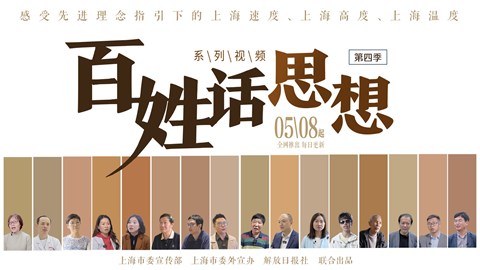Life in quarantine made easier for expats

A group of doctors and community workers come to a household with quarantined people in Biyun community in the Pudong New Area.
As people who arrive in Shanghai with travel or residence history in South Korea, Japan, Iran and Italy in the 14 days prior to their arrival are placed under quarantine, local communities are making their quarantined life easier.
At Biyun international community in Jinqiao Town of the Pudong New Area, which has a population of about 11,000, every other resident is from overseas. As of 5pm on March 6, a total of 31 foreign residents in the area administered by Biyun No.1 residents’ committee were under compulsory home quarantine.
Li Ting, a social worker serving foreign residents in the community, responds to the needs of residents together with three of her colleagues.
Communication is done through WeChat, where Li formed groups of residents together with a doctor. She translates between the residents and doctors and conveys the residents’ needs to the property management workers.
Not being able to take their household garbage out and to get food, the quarantined residents are helped by the community workers.
“When they have a broken thermometer, we bring a new one to their doorstep, and if they need medicine, the doctors are there to help,” Li said.
Every resident under quarantine in the community is given a package with a bag of masks, a thermometer, a bottle of disinfectant, a quarantine notice and a health reminder when the quarantine starts.

Two doctors help Yang Yanli (middle), a social worker serving foreign residents in Biyun community, put on her protection suit and mask. Yang and her colleagues serve as translators between the residents and the doctors.
Taking over
At Gubei community in Changning District, about 16,000 residents are from overseas, account for half of all residents there. About 70 of them are from Japan and South Korea.
Gao Huan, head of Gubei Road work station of Ronghua residents’ committee in Changning District, said he and his colleagues have been on duty 24/7 from March 3 to serve the residents who return from overseas and are supposed to be quarantined.
“The subdistrict officials on duty take the residents directly from the airport, and we residents’ committee workers wait at the residential communities where they live and register them when they arrive,” he said.
The quarantined residents are given contact numbers of the community officials and can ask for their help any time.
“So far, all of the quarantined people have been very cooperative and understanding,” Gao said.
As of 5pm on March 7, a total of 339 people returning from the four key countries were place under compulsory home quarantine in this community.
People who come to Shanghai from other countries so far are advised by the community to monitor their health for 14 days and inform the residents’ committee or property management workers immediately when they feel ill.

Raffaele Ragini, an Italian resident of Biyun community, volunteered to help the guards of the residential complex where he lives.
Foreign volunteers
At Gubei community, about 20 foreign volunteers are working alongside local community workers. One of them is Hamid Mahamoud from Chad who lives in Minhang District.
“Some expats said they don’t understand why they have to have their temperatures taken every time they enter their residential complex, or why they can’t invite their friends who don’t live there to visit them, and after our explanation, they usually understand,” he said.
At Biyun international community, about 30 residents who speak foreign languages have been recruited to help with community work to smooth out life under the epidemic.
The volunteers help register residents’ information, translate leaflets and other materials and inform foreign residents of news about the epidemic and government policy via WeChat.
Raffaele Ragini, an Italian resident of Phoenix Mansion, a residential complex in the community, offered to work as a volunteer after learning about volunteers elsewhere in the city. He has been living in Shanghai since late December last year.
He helps the guards in his residential complex handle deliveries and takes temperatures of people who enter.
“The expats I know all praise China for the fast reaction in controlling the epidemic and trust the country because it has experience in dealing with such situations,” he said.
















